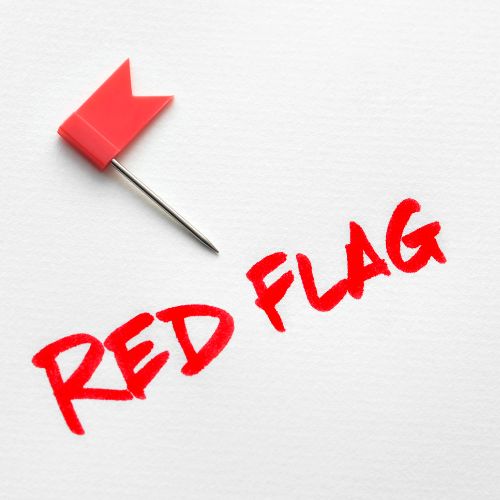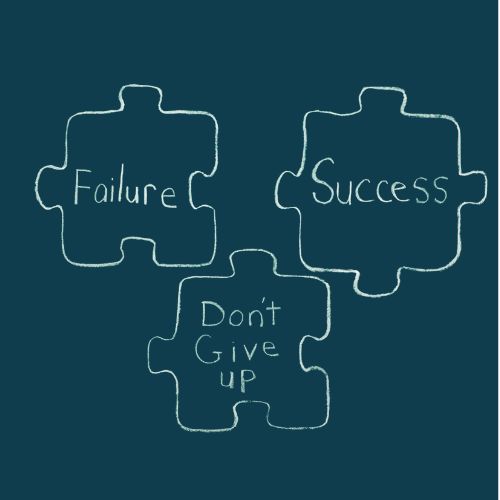
How to Spot Red Flags Early in a Relationship
Entering a new relationship is exciting, but it’s essential to be aware of potential warning signs that might indicate problems down the road. Spotting red flags early can save you from heartache and help you make informed decisions about the future of the relationship. This guide will walk you through common red flags and how to recognize them, providing you with the tools to protect your emotional well-being while navigating new relationships.
1. Controlling Behavior
One of the most significant red flags in any relationship is controlling behavior. If your partner tries to dictate who you can see, what you can wear, or how you should behave, it’s a sign that they might not respect your independence. Healthy relationships are built on trust, not control.
- What to watch for: Your partner may insist on knowing your whereabouts at all times, get angry when you spend time with others, or make decisions for you without your input. These behaviors can escalate over time and lead to more serious issues.
2. Lack of Respect for Boundaries
Everyone has personal boundaries, and a partner who doesn’t respect yours can be a red flag. Boundaries are crucial for maintaining a sense of individuality and emotional security in a relationship. If someone ignores or dismisses your boundaries, it’s a sign they may not value your comfort or well-being.
- What to watch for: Pushing physical or emotional limits, invading your privacy, or pressuring you to do things you’re uncomfortable with are clear indicators that your partner isn’t respecting your boundaries.
3. Dishonesty or Inconsistency
Trust is the foundation of any healthy relationship, and dishonesty can erode it quickly. If you catch your partner lying about small things, it may be a sign of bigger issues to come. Inconsistency in their words and actions can also indicate that they’re not being entirely truthful or reliable.
- What to watch for: Pay attention if your partner’s stories don’t add up, if they avoid answering direct questions, or if their actions don’t align with their words. Frequent excuses and vague answers may also point to dishonesty.
4. Excessive Jealousy
Jealousy is normal in small doses, but when it becomes excessive or irrational, it’s a red flag. A partner who is constantly suspicious or possessive may have trust issues that can lead to conflict. Excessive jealousy can also be a precursor to controlling behavior.
- What to watch for: If your partner regularly accuses you of flirting or cheating without reason, or if they become angry when you spend time with friends or family, this could signal deeper insecurity and mistrust.
5. Gaslighting
Gaslighting is a form of emotional manipulation where your partner makes you question your reality or feelings. This can lead to self-doubt and confusion, making it harder for you to trust your own judgment. Over time, gaslighting can erode your self-esteem and make you feel dependent on your partner.
- What to watch for: If your partner denies things they’ve said or done, blames you for their behavior, or dismisses your concerns as “crazy” or “overreacting,” they may be trying to manipulate your perception of reality.
6. Disregard for Your Feelings
A partner who consistently dismisses or invalidates your emotions may not have the emotional maturity needed for a healthy relationship. Relationships require empathy and understanding, and if your partner is unwilling or unable to acknowledge your feelings, it’s a red flag.
- What to watch for: If your partner minimizes your concerns, tells you that your feelings don’t matter, or avoids discussing emotional topics, it could be a sign that they’re not invested in your emotional well-being.
7. Unwillingness to Compromise
In any relationship, compromise is essential. If your partner is consistently unwilling to meet you halfway or insists on always getting their way, it may be a sign that they don’t respect your needs or value fairness. A relationship where one person dominates decision-making is not sustainable in the long run.
- What to watch for: Does your partner refuse to consider your opinion when making plans? Are they insistent on having things done their way without considering how it affects you? These behaviors can indicate selfishness and a lack of respect.
8. Constant Criticism or Belittling
A healthy relationship should lift you up, not tear you down. If your partner frequently criticizes, belittles, or mocks you, it can damage your self-esteem and create an unhealthy dynamic. Constant negative comments, even in the guise of “jokes,” can take a toll on your mental and emotional health.
- What to watch for: Does your partner make you feel bad about yourself, put down your accomplishments, or criticize your appearance or personality? These behaviors are not normal or healthy in any relationship.
9. Isolation from Friends and Family
If your partner tries to isolate you from your support network, it’s a major red flag. Healthy relationships encourage you to maintain connections with friends and family. Isolation can be a tactic to make you more dependent on your partner, giving them greater control over your life.
- What to watch for: If your partner discourages you from seeing loved ones, complains when you spend time with others, or tries to make you feel guilty for maintaining outside relationships, it’s a sign of unhealthy behavior.
10. Hostility or Anger Issues
Everyone gets angry from time to time, but if your partner has frequent outbursts or expresses anger in unhealthy ways, it’s a red flag. This could include yelling, name-calling, throwing things, or other forms of aggressive behavior. Uncontrolled anger can be dangerous and should not be ignored.
- What to watch for: Pay attention if your partner reacts to minor inconveniences with extreme anger, directs their frustration at you, or refuses to take responsibility for their outbursts. These behaviors can escalate and lead to more serious issues.






